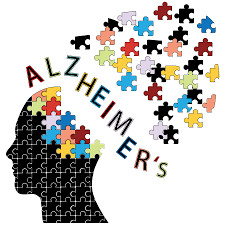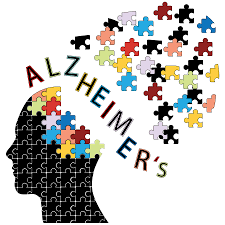
Some early signs for Alzheimer's disease might be a disorder in sleep and wake cycle, claims an American study.
For those people who have their memories intact but early, preclinical evidence of Alzheimer's is shown by their brain scans, cases of circadian rhythm disruption happen much earlier, indicated the research work carried out at Washington University School of Medicine in St. Louis.
Because of the fact that Alzheimer's damage can being in the brain some 15 to 20 years before appearance of any clinical symptoms, therefore, identification of the people who are at risk getting the ailment earlier than presently is possible would be helped by the findings that were published in the journal of JAMA Neurology.
"It wasn't that the people in the study were sleep-deprived," said first author Erik S. Musiek, an assistant professor of neurology. "But their sleep tended to be fragmented. Sleeping for eight hours at night is very different from getting eight hours of sleep in one-hour increments during daytime naps."
Similar circadian disruptions were found to accelerate the development of amyloid plaques in the brain that are related to Alzheimer's and this was the deduction of the researchers in a separate study in mice which is scheduled to be published Jan. 30 in The Journal of Experimental Medicine.
There is predictable fluctuation in the levels of amyloid during the day and night, found previous studies at Washington University. the studies were done on both people and animals. According to research by senior author, Yo-El Ju, levels of amyloid get reduced during sleep, and there have been multiple researches that have exhibited that when there is a disruption of sleep or when people are not able get enough deep sleep, there is increase in the levels.
"In this new study, we found that people with preclinical Alzheimer's disease had more fragmentation in their circadian activity patterns, with more periods of inactivity or sleep during the day and more periods of activity at night," said Ju, an assistant professor of neurology.
Evidence of amyloid buildup in their brains is more likely to be present in people who undertook short spurts of activity and rest during day time as well as in night, shows the study.
However, both researchers claimed that answer to the chicken-and-egg question of whether people are put at risk of Alzheimer's disease by disrupted circadian rhythms or whether circadian rhythms are disrupyed by changes in the brain caused by Alzheimer's-related changes vannot be given as yet.
"At the very least, these disruptions in circadian rhythms may serve as a biomarker for preclinical disease," said Ju. "We want to bring back these subjects in the future to learn more about whether their sleep and circadian rhythm problems lead to increased Alzheimer's risk or whether the Alzheimer's disease brain changes cause sleep and wake cycle and circadian problems."
(Source:xinhuanet.com)
For those people who have their memories intact but early, preclinical evidence of Alzheimer's is shown by their brain scans, cases of circadian rhythm disruption happen much earlier, indicated the research work carried out at Washington University School of Medicine in St. Louis.
Because of the fact that Alzheimer's damage can being in the brain some 15 to 20 years before appearance of any clinical symptoms, therefore, identification of the people who are at risk getting the ailment earlier than presently is possible would be helped by the findings that were published in the journal of JAMA Neurology.
"It wasn't that the people in the study were sleep-deprived," said first author Erik S. Musiek, an assistant professor of neurology. "But their sleep tended to be fragmented. Sleeping for eight hours at night is very different from getting eight hours of sleep in one-hour increments during daytime naps."
Similar circadian disruptions were found to accelerate the development of amyloid plaques in the brain that are related to Alzheimer's and this was the deduction of the researchers in a separate study in mice which is scheduled to be published Jan. 30 in The Journal of Experimental Medicine.
There is predictable fluctuation in the levels of amyloid during the day and night, found previous studies at Washington University. the studies were done on both people and animals. According to research by senior author, Yo-El Ju, levels of amyloid get reduced during sleep, and there have been multiple researches that have exhibited that when there is a disruption of sleep or when people are not able get enough deep sleep, there is increase in the levels.
"In this new study, we found that people with preclinical Alzheimer's disease had more fragmentation in their circadian activity patterns, with more periods of inactivity or sleep during the day and more periods of activity at night," said Ju, an assistant professor of neurology.
Evidence of amyloid buildup in their brains is more likely to be present in people who undertook short spurts of activity and rest during day time as well as in night, shows the study.
However, both researchers claimed that answer to the chicken-and-egg question of whether people are put at risk of Alzheimer's disease by disrupted circadian rhythms or whether circadian rhythms are disrupyed by changes in the brain caused by Alzheimer's-related changes vannot be given as yet.
"At the very least, these disruptions in circadian rhythms may serve as a biomarker for preclinical disease," said Ju. "We want to bring back these subjects in the future to learn more about whether their sleep and circadian rhythm problems lead to increased Alzheimer's risk or whether the Alzheimer's disease brain changes cause sleep and wake cycle and circadian problems."
(Source:xinhuanet.com)





